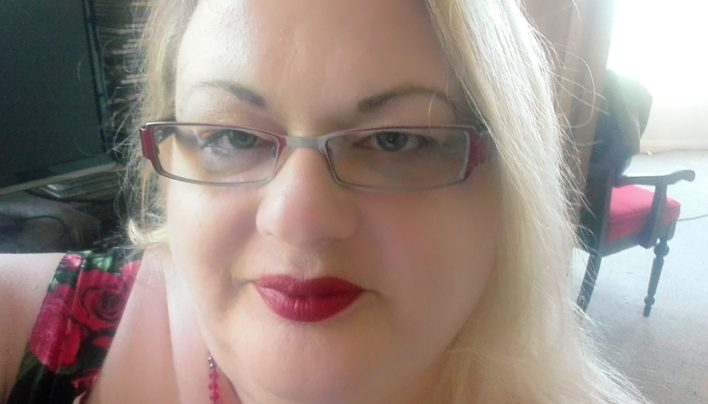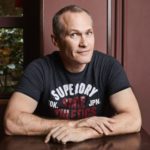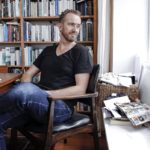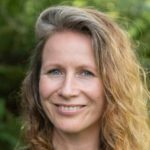Unity Books has stocked many beautiful poetry books both penned by Helen Rickerby and published by her very own Seraph Press so we were excited to read about the authors and books that inspire her. Please join us for the double launch of Helen’s new poetry collection, How To Live and AUP New Poets 5: Carolyn DeCarlo, Sophie van Waardenberg and Rebecca Hawkes (Auckland University Press) 6-7:30pm Wednesday 7th August 2019. All welcome.
ABOUT ‘HOW TO LIVE’
A new poetry collection that takes readers among ‘the unsilent women’, from Hipparchia to J. K. Rowling.
‘Women who speak have always been monstrous. That twisty sphinx, those tempting sirens; better plug your ears with wax, boys.’
Where are the female philosophers? Why are women silenced? Who can tell us how to live? In her fourth collection of poetry, Helen Rickerby takes readers on a journey into women’s writing, a quest for philosophical answers, and an investigation of poetic form.
The poems in How to Live engage in a conversation with ‘the unsilent women’ – Hipparchia and George Eliot, Ban Zhao and Mary Shelley. They do so in order to explore philosophical and practical questions: how one could or should live a good life, how to be happy, how to not die, how to live. Rickerby thinks through the ways that poetry can build up and deconstruct a life, how the subtext and layers inherent in poetry can add to the telling of a life story, and how different perspectives can be incorporated into one work – the place where poetry meets essay, where fiction meets non-fiction, where biography meets autobiography, where plain-speaking meets lyricism, where form pushes against digression.
The work is witty (‘Perhaps I should ban “perhaps”.’) and self-reflexive (‘Am I afraid that if I let the words leak out, they’ll mix with oxygen and become prose?’) as Rickerby draws on the intensity, symbolism and layering of poetic form, using poetry as a space of exploration of ideas, of thinking, of essaying.
‘Helen Rickerby’s How to Live is a collection of witty and readable poems on the poetic and philosophical questions inherent in the title, especially as they relate to the lives of women writers, and it is a bold experiment in the boundaries of poetic form.’ – Lydia Wevers
‘Helen Rickerby brings contemporary and historical feminisms up close and heartbreaking, in a tradition that includes Anne Carson and Anna Jackson. Revelatory and ebullient, warm and intimate, these poems ring with finely worded clarity.’ – Anne Kennedy
ABOUT THE AUTHOR
Helen Rickerby is a writer, editor and publisher. She has published three previous poetry collections, most recently Cinema (Mākaro Press, 2014), and her work has appeared in numerous journals and anthologies, including Essential New Zealand Poems: Facing the Empty Page (Godwit, 2012). Rickerby was co-managing editor of literary journal JAAM from 2005–15 and single-handedly runs Seraph Press, a boutique but increasingly significant publisher of New Zealand poetry.
WHAT ARE YOU CURRENTLY READING AND HOW DID YOU DISCOVER THE BOOK(S)?
I’m always in the middle of a whole bunch of books – a few I have on the go at the moment are: Eros the Bittersweet, a lyrical book about romantic love mainly as represented in ancient Greek poetry, by Anne Carson, who is probably my favourite poet; How I Get Ready by Ashleigh Young; Notes of a Native Son by James Baldwin, and Wives and Daughters by Mrs (Elizabeth) Gaskell. I haven’t read anything by Gaskell before, but it was recommended to me by my friend Siobhan as a Victorian novel with some things we think of as quite contemporary – apparently the characters even talk about menstruation, but I haven’t got up to that yet.
WHO ARE YOUR FAVOURITE WRITERS AND WHAT DO YOU LOVE ABOUT THEM?
As a contrarian, I find it hard to commit to favourites, but I’m on pretty safe ground to say that the aforementioned Anne Carson is one of my favourite writers. I love the way she really stretches the boundaries of what we even think poetry is. My favourites of her poems are hybrid works, often straying into essay and/or critical writing, and she has been a big influence on my own work. I don’t love everything she does, but I often finish an Anne Carson poem feeling ‘Wow! You can do THAT with poetry!’, and also feeling quite inspired. I feel similarly about Anna Jackson’s poetry – with her short lyrical, whimsical poems and her long ironic epics. And then there are classic writers I love, like Jane Austen, whose books are so funny and so true, and Tolstoy, who can make even boring things like duck hunting or scything grass so exciting to read about.
WHAT BOOKS ARE ON YOUR BEDSIDE TABLE?
Not literally on my bedside table, but rather scattered in piles around the house or on the top of other books on the bookcase, but I always have a lot of books I’m planning to read next. A small selection: Frankisstein by Jeanette Winterson, a retelling of Frankenstein, which was a birthday present from a friend; the soon-to-be-launched Wild Honey, Paula Green’s landmark book about New Zealand woman poets; a bunch of books (poetry, essay, novel) by Anne Michaels, who I saw at the Auckland Writers Festival; Tim Jones’s new novella Where We Land about climate change refugees; and some poetry: Essa May Ranapiri’s Ransack and of course AUP New Poets 5.
WHAT IS YOUR FAVOURITE BOOK-TO-FILM ADAPTATION?
Again, I’m hard-pressed to say ‘favourite’, but I did just recently watch Apocalypse Now (final cut) at the Film Festival. I really wanted to see it on the big screen and it was still amazing. The first time I watched it (on a small TV) was with my book club – which actually was just me, Sean (my partner) and a couple of friends. We’d just read Heart of Darkness by Joseph Conrad, and watched a more literal adaptation, which was pretty rubbish. But I was really blown away by how Apocalypse Now really captures the feeling of the book, while also being its completely different own thing.
WHAT BOOK HAVE YOU RE-READ THE MOST AND WHY?
As an adult I don’t reread that often – there are so many other books to read! But as I child I would often reread favourite books. I can’t imagine how many times I read the Narnia series, which I LOVED (except for The Last Battle, which I think we can all agree was a bit disappointing).
WHO IS YOUR FAVOURITE LITERARY CHARACTER?
This is pretty hard, but a recent example is Shirley, in Charlotte Brontë’s novel of the same name. I thought it was about time I read it. Shirley takes a rather long time to turn up in her own novel – not until about a third of the way into a 600-page book (I was starting to doubt her existence) – but when she does she’s fabulous! She’s a sassy, strong, beautiful heiress striding her way through this rather surprising Victorian novel (though I’m often surprised by the Victorians – they’re never as ‘Victorian’ as I expect them to be). I pretty much fell in love with her.
WHAT BOOK HAVE YOU ALWAYS BEEN MEANING TO READ BUT STILL HAVEN’T GOTTEN AROUND TO?
So many! They are often long, hard ones that I know will be rewarding, but which I can’t quite commit to – like James Joyce’s Ulysses, or In Search of Lost Time by Marcel Proust – which I did actually start, but it was so long ago I had really better start again. Based on a very unscientific survey, it sounds like it takes an average of seven years to read the six volumes of Proust.
WHICH THREE WRITERS WOULD YOU HAVE OVER FOR DINNER?
A truly honest answer would be some of my dear friends who are also writers (say, Anna Jackson, Vana Manasiadis, the Helens (Lehndorf and Heath) or Anne Kennedy), but because this is a hypothetical question, I’m going to go for a more impossible trio: George Eliot, Katherine Mansfield and Sylvia Plath. They are all writers I have read a lot about and thought a lot about – both their lives and their work. My new book, How to Live, contains a long prose poem that is a deconstructed biography of George Eliot, for which I had to do a lot of research; Sean and I once wrote a screenplay (currently unproduced…) for a biopic of Katherine Mansfield, and so I’ve read ALL the biographies at least once; and I’ve read a lot about Sylvia Plath too. Despite all that reading though, I’m still not sure what they would actually be like in real life, and I’m quite curious. They all seem quite contradictory people. I’m a bit doubtful I’d actually get along with them though, or whether they’d get along with each other, so it might be a disaster of a dinner party.
WHAT WOULD YOU COOK THEM?
I’d definitely make them my fail-safe and easy spinach and feta cannelloni – it’s my own deviation on a probably already very inauthentic Alison Holst recipe, but it is delicious. So even if the conversation was terrible, we’d at least have a nice meal.
HOW ARE YOUR BOOKS SHELVED AND ORGANISED AT HOME?
I used to work in libraries, and I’m sure that rubbed off on me. Our books are shelved in different sections and mostly alphabetically by author – there’s poetry (mine), science fiction and fantasy (Sean’s), literary novels, interesting non-fiction, children’s, art books and random things (ours). But – lest you should erroneously think I’m actually an organised person – this is just in the more ‘public’ areas of the house. It all falls apart in the spare room, where at least half our books live. This is a kind of overflow, with books stuffed anywhere they can fit, and in piles and boxes on the floor, next to other boxes of Seraph Press stock. I really should get in there and sort them out…
WHAT IS YOUR FAVOURITE LITERARY QUOTE?
I couldn’t say this is my favourite, but I have always been struck by this gorgeously ironic (I hope!) quote from George Eliot’s Middlemarch: ‘Sane people did what their neighbours did, so that if any lunatics were at large, one might know and avoid them.’






